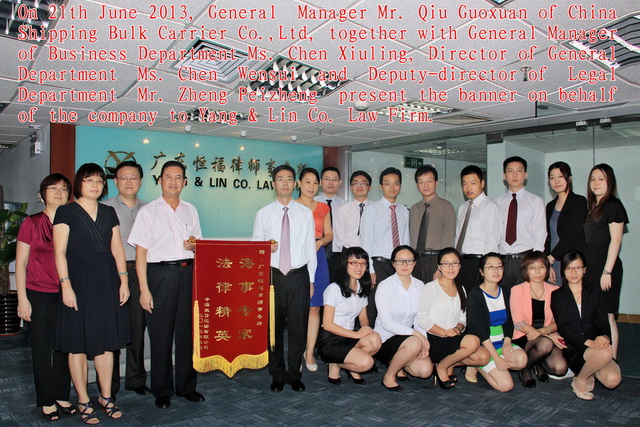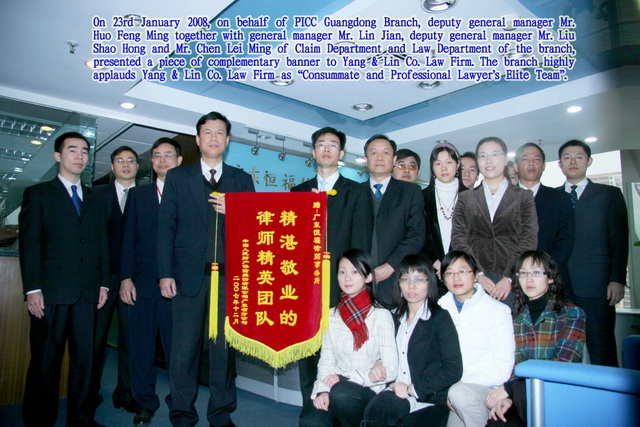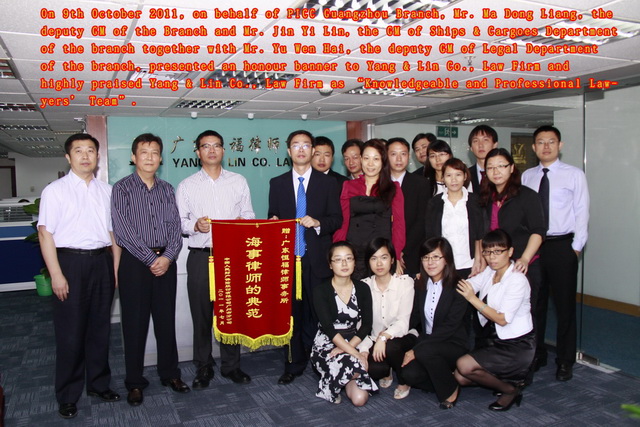Tensions between China and the US are increasing over trade issues. The U.S. government continues to put up hard-line stance and the concern of US trade protectionism seems becoming a reality gradually. Regarding the conflicts resulted from the tensions, how to give a full play to our foreign-related lawyers to settle the trade war and better protect legitimate rights and interests for Chinese businessmen? The development Initiative Research Committee, and the Belt and Road Committee of Guangzhou Lawyers Association invited Professor Nick Allard, dean of the Brooklyn Law School, and Professor Michael Gerber to address on “The Status Quo of US Investment Review on Chinese Enterprises under President Trump’s Policy”

On the afternoon
of 11 April 2018, the lecture “The Status Quo of US Investment Review on
Chinese Enterprises under President Trump’s Policy” was successfully held in
the conference room of Guangzhou Lawyers Association. The lecture was jointly
held by the Lawyer Development Initiative Research Committee of Guangzhou
Lawyers Association, the Belt and Road Committee of Guangzhou Lawyers
Association, the New Sodality and legal Industry Branch for Social Class, and
the Guangzhou Legal Business Environment Research Institute of Guangzhou
Lawyers Association. Huang Shan, vice chair of Guangzhou Lawyers Association,
attended the lecture and delivered a speech. The lecture was presided over by
Chen Keyu the chair of the Lawyer Development Initiative Research Committee,
and the concluding speech was addressed by Lin Cuizhu the chair of the Belt and
Road Professional Committee.
Huang Shan first expressed
great welcome and thanks to the two professors who travelled to Guangzhou to
give a special lecture for Guangzhou’s lawyers. Huang Shan said that there
were times when conflict arose from trading with the US, and this
lecture was significant for Chinese foreign-related lawyers who engaged in
China-US investment legal service, persisted in protecting legitimate rights
and interests for Chinese businessmen, and wished to contribute to settling the
trade war. He hoped that the lecture would inspire and benefit the attendees.
Mr. Huang exchanged
gifts.
Mr. Chen acted as
the host.
At the beginning
of the lecture, Professor Michael Gerber elaborated on the CFIUS (Committee on
Foreign Investment) review on Chinese investment in the US, with reference to
substantial cases. He said CFIUS was not a new creation. Its heightened
activity on reviewing Chinese investment was the result of globalization and
prosperity of China-US trading. Afterwards, he analyzed the key issues of CFIUS
review by referring to some examples such as Alibaba acquiring MonyGram
International, and Anbang Insurance Group acquiring U.S. life insurance company.
He also pointed out that CFIUS review was a strong possibility if the transaction
involved artificial intelligence, cyber security, defense, and other critical technologies.
Chinese enterprises was advised to initially apply for CFIUS review to prevent
subsequent review. Meanwhile, Professor Gerber suggested lawyers recognize
certain kinds of transactions that CFIUS review paid close attention to. There
was strong possibility of review if the investment or acquisition was covered in
those transaction types. He also added that CFIUS did not operate in a vacuum.
The Committee’s work was governed by many laws and regulations. Lawyers should
learn about those laws and regulations to prevent risks for their clients and to
provide them with more professional and effective service. Professor Gerber’s
lecture was enlightening.


Professor Gerber related to two points in his conclusions: First, the CFIUS organization had been established for a long time. It was not created to act against China or another country. Due to the rapid development of China's economy in recent years, more and more Chinese companies were going global and participating in the acquisitions of US companies. The increase in cross-border transactions brought about an increase in CFIUS review. The relevant provisions of CFIUS did not aim to obstruct Chinese company’s acquisition and investment of US companies. Second, every country imposed strict review on foreign acquisition to local enterprises for the sake of national security or intellectual property rights, etc. CFIUS clauses and terms may enable the lawyers to help the enterprises evaluate themselves and the possibility of acquisition or investment, in order to prevent great loss caused by unsuccessful acquisitions or investments.

Professor Michael Gerber of Brooklyn Law School
Professor Nick Allard, dean of Brooklyn Law School, shared the policy dynamics and trends regarding Chinese company’s investment in the US. He said that Chinese lawyers should not regard CFIUS as an enemy, rather they should use it to evaluate whether their clients meet the conditions for investing in US companies, and strive to help their clients to meet those requirements. Professor Allard also talked about the future of legal services. He believed that the trend of technological development and economic globalization had driven changes in the legal services industry. In particular, artificial intelligence changed the way lawyers work. However, lawyer’s persuasiveness, analytical skills, and ability to provide effective counseling were irreplaceable by artificial intelligence. Lawyers should keep working hard on those skills to be competitive, and reach balance between those traditional skills and reformed working methods.

Professor Nick Allard, dean of Brooklyn Law School
After the speech, both professors also had interaction with the lawyers on site. The lawyers were eager to consulted the professors about tariff difference between China and the US, definition of “thief” in the protection of intellectual property rights, internal operation mode of CFIUS when the transaction was subject to CFIUS review, and how to help clients facilitate the transaction. Professors answered in detail from the perspective of globalization and differences between the two countries. They believed that, as was proved by the history, trade war was not a good choice for solving any trading problem, which was most likely to result in lose-lose situation. As for the definition of "thief", it should be analyzed case by case. For instance, Zuckerbuck was being questioned by the US Congress, and looking at the accusation his company was facing, Facebook was having a tough time. On the other hand, Professor Gerber said the CFIUS had up to 75 days to review the transaction and decided whether it should be approved or blocked. The first thing to be clarified was that CFIUS did not directly block the transaction. The review results would be submitted to the President and recommended the President to block the transaction. In general, the President would directly adopt the recommendation, and it was the president who ordered the termination. Therefore, if the results of the CFIUS review were unfavorable to the transaction, lawyers should try to contact with CFIUS to negotiate and revise the content of transaction to get through the CFIUS.
Finally, Lin Cuizhu, the chair of the Belt and Road Legal Professional Committee of the Guangzhou Lawyers Association, made a concluding remark. First of all, she expressed thanks for the brilliant lectures. She believed that foreign-related lawyers in Guangzhou had to truly participate in more foreign exchanges and study under “the Belt and Road” initiative. Especially the training program for New York bar exam established by the Brooklyn Law School drew great attention from most lawyers at the lecture. Lin Cuizhi sincerely hoped to work in closer partnership with Brooklyn Law School to provide Guangzhou lawyers with more chance of further education and training in renowned law schools overseas, especially the chance of training and exam for lawyers to obtain lawyer’s license in foreign countries. Only in this way could Guangzhou lawyers truly go global and have the credentials to play their roles on the international arena.

Lin Cuizhu, the chair of the Belt and Road Legal Professional Committee of Guangzhou Lawyers Association
The lecture was closely related to hot issues, imparting practical knowledge. Professor Allard hoped everyone pay more attention to the entire US legal system while paying attention to the President. Everyone should be willing to see the rule of law becomes increasingly complete in the United States and the world, and everyone should be willing to work hard for it. This lecture provided a valuable reference for Guangzhou’s lawyers to help Chinese enterprises to “go global” and to carry out legal services under “the Belt and Road” initiative. Especially in the tension of China-US trade, this lecture helped us learn more about attitudes and policies of the US government, provided valuable information and confidence to settle the trade war. This lecture was a great success, and the lawyer attendees felt they benefited a great deal from the lecture.

Group photo of some attendees


